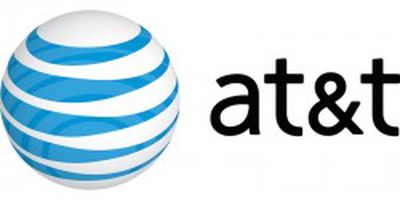AT&T Fined $100 Million by FCC for Unlimited Data Throttling Practices
 The United States Federal Communications Commission today announced plans to fine AT&T $100 million for misleading customers about its unlimited mobile data plans. Following an investigation, the FCC is accusing AT&T of severely slowing down the data speeds of customers with unlimited data plans and failing to adequately warn them about the slower data speeds.
The United States Federal Communications Commission today announced plans to fine AT&T $100 million for misleading customers about its unlimited mobile data plans. Following an investigation, the FCC is accusing AT&T of severely slowing down the data speeds of customers with unlimited data plans and failing to adequately warn them about the slower data speeds.
In 2011, AT&T implemented a "Maximum Bit Rate" policy and capped the maximum data speeds for unlimited customers after they used a set amount of data within a billing cycle. The capped speeds were much slower than the normal network speeds AT&T advertised and significantly impaired the ability of AT&T customers to access the Internet or use data applications for the remainder of the billing cycle.
The FCC says AT&T violated the 2010 Open Internet Transparency Rule by falsely calling its plans "unlimited" and by not informing customers of the maximum speed they would receive under AT&T's Maximum Bit Rate policy. Millions of customers suffered slow data speeds, with some seeing speed reductions for 12 days per month on average.
On the decision, FCC chairman Tom Wheeler had this to say: "Customers deserve to get what they pay for. Broadband providers must be upfront and transparent about the services they provide. The FCC will not stand idly by while consumers are deceived by misleading marketing materials and insufficient disclosure."
AT&T ceased offering unlimited data plans years ago, but it continues to have customers with grandfathered unlimited data plans. AT&T previously throttled all of those customers after they exceeded 5GB of LTE data, but in May, AT&T implemented a policy change that sees customers being throttled only when connected to a cell tower experiencing network congestion.
Along with facing a $100 million fine levied by the FCC, AT&T is also involved in an ongoing lawsuit with the Federal Trade Commission over the same issue.
Popular Stories
Apple turns 50 this year, and its CEO Tim Cook has promised to celebrate the milestone. The big day falls on April 1, 2026.
"I've been unusually reflective lately about Apple because we have been working on what do we do to mark this moment," Cook told employees today, according to Bloomberg's Mark Gurman. "When you really stop and pause and think about the last 50 years, it makes your heart ...
Apple plans to announce the iPhone 17e on Thursday, February 19, according to Macwelt, the German equivalent of Macworld.
The report, citing industry sources, is available in English on Macworld.
Apple announced the iPhone 16e on Wednesday, February 19 last year, so the iPhone 17e would be unveiled exactly one year later if this rumor is accurate. It is quite uncommon for Apple to unveil...
In the iOS 26.4 update that's coming this spring, Apple will introduce a new version of Siri that's going to overhaul how we interact with the personal assistant and what it's able to do.
The iOS 26.4 version of Siri won't work like ChatGPT or Claude, but it will rely on large language models (LLMs) and has been updated from the ground up.
Upgraded Architecture
The next-generation...
While the iOS 26.3 Release Candidate is now available ahead of a public release, the first iOS 26.4 beta is likely still at least a week away. Following beta testing, iOS 26.4 will likely be released to the general public in March or April.
Below, we have recapped known or rumored iOS 26.3 and iOS 26.4 features so far.
iOS 26.3
iPhone to Android Transfer Tool
iOS 26.3 makes it easier...
The iPhone 18 Pro Max will feature a bigger battery for continued best-in-class battery life, according to a known Weibo leaker.
Citing supply chain information, the Weibo user known as "Digital Chat Station" said that the iPhone 18 Pro Max will have a battery capacity of 5,100 to 5,200 mAh. Combined with the efficiency improvements of the A20 Pro chip, made with TSMC's 2nm process, the...
 The United States Federal Communications Commission today announced plans to fine AT&T $100 million for misleading customers about its unlimited mobile data plans. Following an investigation, the FCC is accusing AT&T of severely slowing down the data speeds of customers with unlimited data plans and failing to adequately warn them about the slower data speeds.
The United States Federal Communications Commission today announced plans to fine AT&T $100 million for misleading customers about its unlimited mobile data plans. Following an investigation, the FCC is accusing AT&T of severely slowing down the data speeds of customers with unlimited data plans and failing to adequately warn them about the slower data speeds.



















